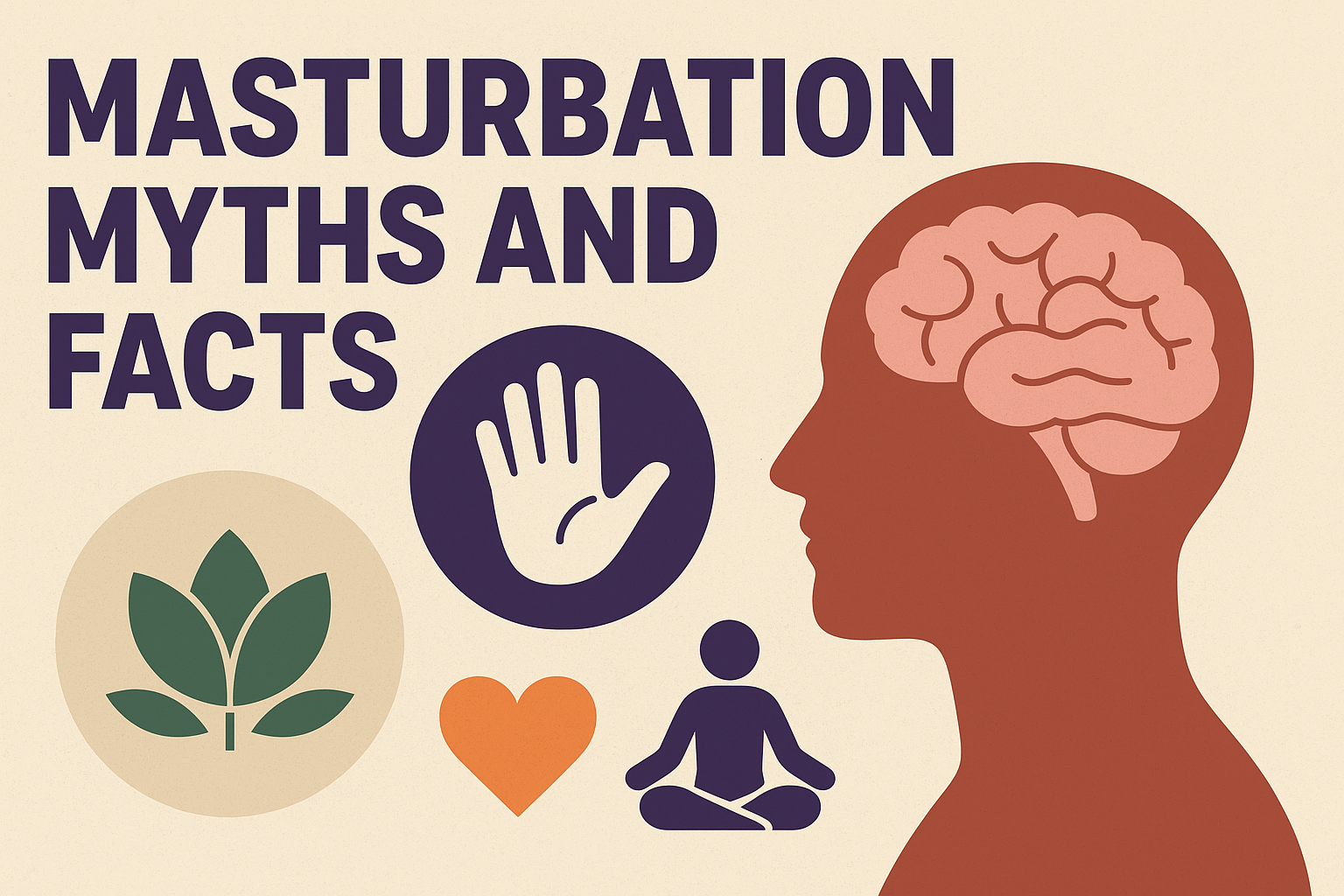Introduction
Masturbation is one of the most misunderstood topics in human health. Surrounded by centuries of taboo, it’s often linked to guilt, weakness, or moral judgment. But modern science paints a completely different picture — one rooted in biology, psychology, and self-care.
In this blog, we separate myths from medical truth to help you understand masturbation in a healthy, shame-free way.
⚡ Myth 1: Masturbation Causes Weakness or Hair Loss
Fact: There’s no scientific evidence that masturbation causes physical weakness, hair loss, or vision problems.
Masturbation is a normal release of sexual tension, and the energy involved is minimal — much like any mild physical activity.
🧬 Studies show that hormones and nutrient levels remain normal, and no lasting weakness occurs.
💭 Myth 2: It Lowers Testosterone Levels
Fact: Research shows that masturbation has no significant long-term effect on testosterone.
Levels may fluctuate slightly for a few hours after orgasm but quickly return to baseline.
In fact, healthy sexual expression can support better mood and hormonal balance.
😰 Myth 3: Masturbation Causes Depression or Anxiety
Fact: When done in moderation, masturbation can actually reduce stress and anxiety by releasing endorphins — the brain’s “feel-good” chemicals.
However, guilt or shame (often caused by cultural stigma) can create emotional distress, not the act itself.
🧠 The key is understanding it as a normal, private aspect of human sexuality, not something dirty or wrong.
🩺 Myth 4: It’s Unhealthy or Addictive by Nature
Fact: Like any behavior, it becomes problematic only when it interferes with daily life, work, or relationships.
Moderate masturbation is healthy and often part of a balanced sexual life.
If someone feels compelled to do it excessively, it may signal stress, loneliness, or underlying emotional issues — not the act itself.
❤️ Myth 5: It’s Only for People Without Partners
Fact: Even people in loving relationships may masturbate. It’s a way of understanding one’s own body, managing stress, or enhancing intimacy.
Sexual self-awareness can improve communication and satisfaction with partners.
🌙 Health Benefits Supported by Science
- Better Sleep: Post-orgasm relaxation helps many people fall asleep faster.
- Pain Relief: Releases endorphins that can reduce menstrual cramps or tension headaches.
- Improved Mood: Boosts dopamine and oxytocin, improving emotional well-being.
- Lower Stress Levels: Regular release can ease built-up tension and anxiety.
🧩 When to Be Careful
While masturbation is healthy, balance matters.
If it causes physical irritation, social withdrawal, or emotional guilt, it’s worth reflecting on your habits or speaking to a health professional.
Conclusion
Masturbation isn’t a moral flaw — it’s a natural human behavior backed by science and biology. Myths about weakness or harm only spread shame and misinformation.
Understanding it through facts allows us to view our bodies with respect, awareness, and self-acceptance.
Disclaimer
This article is for educational and health awareness purposes only. It does not contain explicit content or promote any form of sexual behavior.
